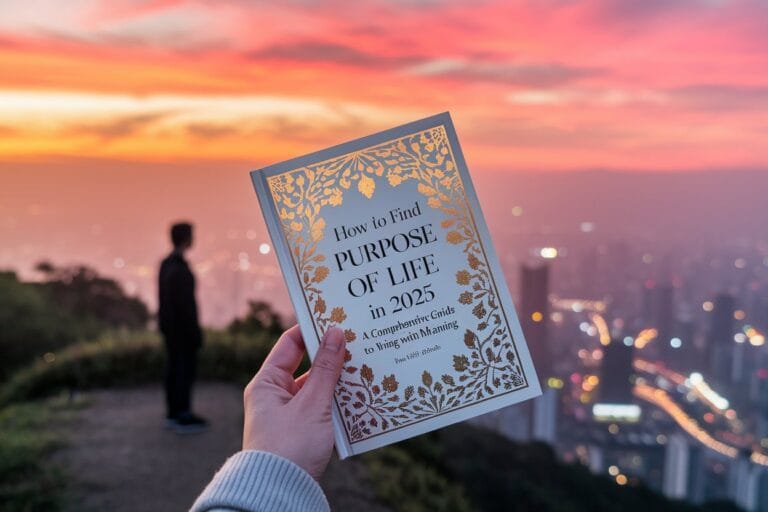
n Z8 uW7QdC1rVZh7slgng
Why Do Humans Seek Validation in 2025: A Deep Dive into the Human Psyche
Validation is a fundamental aspect of human behavior, deeply rooted in our psychological and social frameworks. From the moment we are born, we seek approval, recognition, and acceptance from those around us. But why do humans seek validation so intensely? What drives this innate need to be acknowledged and appreciated? In this blog, we will explore the reasons behind this universal human trait, its impact on our lives, and how understanding it can lead to personal growth and healthier relationships.

The Evolutionary Roots of Validation
To understand why humans seek validation, we must first look at our evolutionary history. Humans are inherently social creatures. Our survival and success as a species have always depended on our ability to form and maintain social bonds. In prehistoric times, being accepted by a tribe or community was crucial for survival. Rejection often meant isolation, which could lead to vulnerability and even death.
This evolutionary need for acceptance has been passed down through generations, ingrained in our DNA. Today, while the stakes may not be as high, the need for validation remains a powerful force. Whether it’s through likes on social media, praise from a boss, or approval from loved ones, the desire to be validated is a reflection of our deep-seated need to belong.
The Psychological Need for Validation
From a psychological perspective, validation fulfils several key needs. According to Maslow’s Hierarchy of Needs, after our basic physiological and safety needs are met, we seek love and belonging. Validation from others helps us feel loved, accepted, and valued. It reinforces our self-worth and contributes to our sense of identity.

When we receive validation, our brain releases dopamine, a neurotransmitter associated with pleasure and reward. This creates a positive feedback loop, encouraging us to seek validation repeatedly. However, this can also lead to a dependency on external approval, which can be detrimental if not balanced with self-validation.
The Role of Social Media in Amplifying Validation Seeking
In the digital age, the quest for validation has taken on new dimensions. Social media platforms like Instagram, Facebook, and Twitter have become arenas where people constantly seek likes, comments, and shares. These platforms are designed to exploit our need for validation, creating a cycle of posting, waiting for reactions, and feeling either validated or rejected based on the response.
The problem with seeking validation through social media is that it is often superficial and fleeting. A post that receives hundreds of likes one day may be forgotten the next, leaving the individual craving more. This can lead to anxiety, low self-esteem, and a distorted sense of self-worth. Understanding why humans seek validation in these spaces is crucial for developing a healthier relationship with social media.
The Impact of Validation on Mental Health
While validation can be beneficial, excessive reliance on it can have negative consequences for mental health. People who constantly seek external validation may struggle with self-doubt, fear of rejection, and perfectionism. They may also be more susceptible to anxiety and depression, as their sense of self-worth becomes tied to the opinions of others.
On the other hand, learning to validate oneself can lead to greater emotional resilience and independence. Self-validation involves recognizing and accepting one’s own feelings and experiences without needing external approval. This doesn’t mean rejecting feedback or support from others, but rather developing a strong internal sense of self-worth.
The Connection Between Validation and Relationships
Validation plays a crucial role in our relationships, both romantic and platonic. When we feel validated by our partners, friends, or family members, it strengthens our bond with them. It creates a sense of trust, understanding, and emotional intimacy.
However, relationships can become strained if one or both parties are overly dependent on validation. For example, a person who constantly seeks reassurance from their partner may come across as needy or insecure, which can create tension. Learning to balance the need for validation with self-assurance is key to maintaining healthy relationships.

Cultural Influences on Validation Seeking
Cultural factors also play a significant role in why humans seek validation. In some cultures, collective approval is highly valued, and individuals may priorities the needs and expectations of their community over their own. In others, individualism is emphasized, and people may seek validation through personal achievements and self-expression.
Understanding these cultural differences can help us appreciate the diverse ways in which validation is sought and given. It also highlights the importance of being mindful of cultural contexts when interacting with others, as what may be considered validating in one culture may not hold the same meaning in another.
The Role of Childhood in Shaping Validation Needs
Our early experiences play a significant role in shaping our need for validation. Children who receive consistent love, support, and encouragement from their caregivers are more likely to develop a healthy sense of self-worth. They learn to validate themselves and are less dependent on external approval.

Conversely, children who grow up in environments where validation is conditional or lacking may struggle with self-esteem issues later in life. They may seek validation from others to fill the void left by their childhood experiences. Recognizing this connection can help individuals address and heal from past wounds, leading to greater emotional well-being.
The Dark Side of Validation Seeking
While validation can be a positive force, it can also have a dark side. In some cases, the need for validation can lead to unhealthy behaviors, such as people-pleasing, perfectionism, or even manipulation. People may go to great lengths to gain approval, often at the expense of their own needs and values.
This highlights the importance of finding a balance between seeking validation and staying true to oneself. It’s essential to recognize when the pursuit of validation is becoming detrimental and to take steps to priorities self-care and authenticity.
How to Cultivate Self-Validation
Learning to validate oneself is a powerful tool for personal growth and emotional well-being. Here are some strategies to cultivate self-validation:
- Practice Self-Compassion: Treat yourself with the same kindness and understanding that you would offer a friend. Acknowledge your strengths and achievements, and be gentle with yourself when you make mistakes.
- Set Boundaries: Learn to say no and priorities your own needs. This helps build self-respect and reduces the need for external validation.
- Focus on Internal Goals: Instead of seeking approval from others, set goals that align with your values and interests. Celebrate your progress and accomplishments, regardless of external recognition.
- Challenge Negative Self-Talk: Replace self-critical thoughts with positive affirmations. Remind yourself of your worth and capabilities.
- Seek Support When Needed: While self-validation is important, it’s also okay to seek support from others. Surround yourself with people who uplift and encourage you.
The Role of Mindfulness in Reducing Validation Seeking
Mindfulness practices, such as meditation and self-reflection, can help reduce the need for external validation. By becoming more aware of your thoughts and feelings, you can develop a deeper understanding of yourself and your motivations. This self-awareness allows you to respond to situations with greater clarity and intention, rather than reacting out of a need for approval.

Mindfulness also helps you stay present, reducing the tendency to dwell on past mistakes or worry about future outcomes. This can lead to greater self-acceptance and a more balanced approach to validation.
The Importance of Authenticity
In a world where validation is often tied to external achievements and appearances, authenticity is a rare and valuable quality. Being true to yourself, even when it means going against the grain, is a powerful form of self-validation. It allows you to live a life that is aligned with your values and passions, rather than one dictated by the expectations of others.
Authenticity also fosters deeper connections with others. When you are genuine, people are more likely to trust and respect you. This creates a positive cycle of validation that is based on mutual understanding and respect, rather than superficial approval.
The Role of Gratitude in Validation
Practicing gratitude can shift your focus from seeking validation to appreciating what you already have. By acknowledging the positive aspects of your life, you can cultivate a sense of contentment and fulfilment that is not dependent on external approval.

Gratitude also strengthens your relationships, as expressing appreciation for others can create a sense of mutual validation. This fosters a supportive and nurturing environment where everyone feels valued and respected.
The Balance Between Seeking and Giving Validation
While it’s important to seek validation, it’s equally important to give it. Validating others—whether through kind words, active listening, or supportive actions—creates a positive and uplifting dynamic. It strengthens your relationships and contributes to a culture of empathy and understanding.
However, it’s essential to ensure that your validation is genuine and not driven by a desire for reciprocation. Authentic validation comes from a place of compassion and respect, rather than ulterior motives.
The Long-Term Benefits of Understanding Validation
Understanding why humans seek validation can have profound long-term benefits. It can help you develop healthier relationships, improve your mental health, and foster personal growth. By recognizing
This understanding also allows you to break free from unhealthy patterns and develop a more balanced and fulfilling approach to validation. Why Do Humans Seek Validation in 2025, A Deep Dive into the Human Psyche Whether it’s through self-validation, mindfulness, or authentic connections, the journey towards a healthier relationship with validation is one of self-discovery and empowerment.

Conclusion: Embracing Validation as a Tool for Growth
In conclusion, the question of why humans seek validation is a complex one, rooted in our evolutionary history, psychological needs, and social dynamics. While validation can be a powerful force for connection and self-worth, it’s essential to strike a balance between seeking external approval and cultivating internal validation.
By understanding the role of validation in our lives, we can harness its positive aspects while avoiding its pitfalls. Whether it’s through self-compassion, mindfulness, or authentic relationships, the journey towards a healthier relationship with validation is one of self-discovery and growth.
So, the next time you find yourself seeking validation, take a moment to reflect on why. Is it coming from a place of genuine need, or is it driven by external pressures? By understanding your motivations, you can make more conscious choices and create a life that is truly fulfilling.
Remember, validation is not just about seeking approval from others—it’s about recognizing and celebrating your own worth. And that, perhaps, is the most powerful validation of all.



